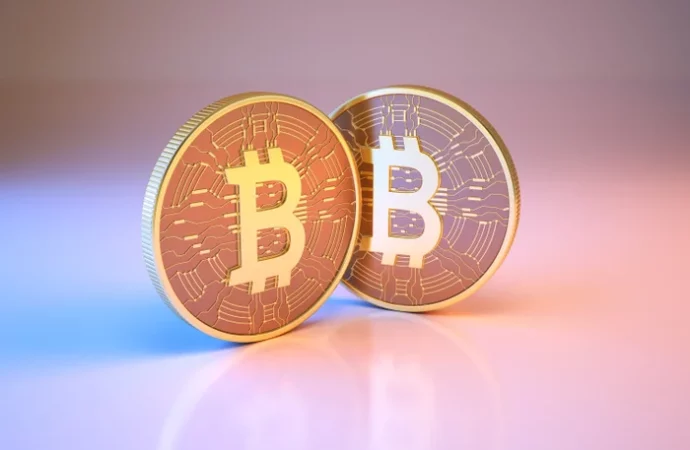In the ever-evolving realm of finance, few phenomena have captured the public’s attention quite like Bitcoin. Its meteoric rise from obscurity to prominence has left many wondering about its potential impact on the American financial landscape. As Bitcoin continues to make headlines and provoke spirited debate among economists, investors, and regulators, it’s imperative to delve
In the ever-evolving realm of finance, few phenomena have captured the public’s attention quite like Bitcoin. Its meteoric rise from obscurity to prominence has left many wondering about its potential impact on the American financial landscape. As Bitcoin continues to make headlines and provoke spirited debate among economists, investors, and regulators, it’s imperative to delve deeper into its influence and ramifications.

This image is taken from google,com
Bitcoin’s Unprecedented Surge
The ascent of Bitcoin, often hailed as digital gold, has been nothing short of remarkable. Since its inception in 2009 by the mysterious figure or group known as Satoshi Nakamoto, Bitcoin’s value has experienced unprecedented growth. From trading at mere cents to reaching staggering highs of over $60,000 per coin, Bitcoin’s trajectory has been characterized by volatility and speculation.
The Disruptive Potential
At the heart of Bitcoin’s allure lies its disruptive potential. Operating on a decentralized blockchain network, Bitcoin challenges traditional notions of currency and financial intermediaries. Its proponents advocate for a future where financial transactions are borderless, transparent, and immune to centralized control. However, skeptics warn of its speculative nature, regulatory hurdles, and environmental concerns associated with its energy-intensive mining process.
Mainstream Adoption and Institutional Interest
Despite initial skepticism, Bitcoin has garnered increasing acceptance among mainstream institutions and investors. Major corporations such as Tesla, MicroStrategy, and Square have allocated significant portions of their treasury reserves to Bitcoin, signaling a growing embrace of digital assets. Furthermore, the emergence of Bitcoin futures trading on established exchanges like the Chicago Mercantile Exchange (CME) has provided institutional investors with avenues for exposure to Bitcoin’s price movements.
Regulatory Challenges and Oversight
Yet, Bitcoin’s journey to mainstream acceptance is not without hurdles. Regulatory scrutiny looms large as policymakers grapple with how to classify and regulate digital assets. Concerns regarding money laundering, tax evasion, and consumer protection have prompted calls for enhanced oversight and regulation. Recent proposals for stricter regulation and taxation of cryptocurrencies underscore the complexities of integrating digital assets into the existing financial framework.
Shaping the Future of Finance
As Bitcoin continues to captivate the public imagination, its influence on the American financial landscape is undeniable. Whether viewed as a revolutionary force or a speculative bubble, Bitcoin has catalyzed discussions about the future of money and finance. Its decentralized nature challenges the hegemony of traditional financial institutions, empowering individuals with newfound autonomy over their wealth.
In navigating the Bitcoin boom, stakeholders must tread carefully, balancing the promise of innovation with the need for prudent regulation. As the American financial landscape evolves, Bitcoin’s role will undoubtedly be a defining factor in shaping the future of finance.




















